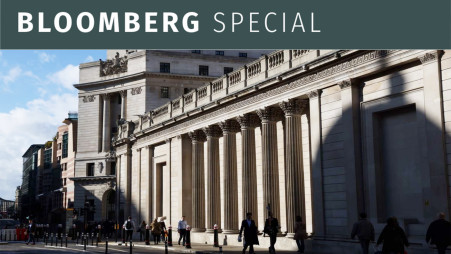We're probably all wrong about interest rates
The widely accepted idea that rates will eventually fall back to pre-pandemic levels is based on economic theories that may turn out to be backward

It's frequently argued that once our economy gets past this burst of inflation, interest rates will fall back to their pre-pandemic lows — and perhaps go lower in the future. Central banks, international organizations and pretty much every economic institution seem to be operating under that assumption. But what if it's wrong?
The thinking is that there's a "natural interest rate" that controls where the Fed and the market set rates. It reflects the productivity of the economy and the supply and demand for bonds. The theory among the world's leading financial institutions is that the natural rate has been trending down for the last few decades and a big reason is an aging population.
This is not just an academic argument. The implication is the US can keep spending because rates — the 10-year is now 3.5% — will eventually fall back to the near-zero rates of the last decade and governments will never have to really reckon with their debt because it won't cost them much to borrow.
One of the world's most influential macroeconomists, Olivier Blanchard, recently made this argument. The private sector also is counting on rates going back down after the Fed vanquishes inflation, which would mean free money and cheap mortgages will be returning soon.
But what if it's not true? What if the last few decades of falling rates was something of an anomaly and an aging population will mean higher, not lower rates?
Recent research by Harvard professor Ken Rogoff questions whether rates will keep falling as the population ages. Real interest rates have been trending downward to near zero, especially since the financial crisis. But we can't count on that trend continuing. He and his co-authors looked at 10-year rates over the last 700 years and found a slight and steady decline as the world became safer and financial markets developed.
But they also found periods of very high or exceptionally low rates that were deviations from the long-term trend. These deviations could last for several years, and they argue that the last 15 years was one such period, not part of a sustainable path. They also estimate that, historically, it's a younger, not older population that results in low rates. The aging population that coincided with falling rates in the last few decades was just a fluke.
The theory that an aging population means lower interest rates gained strength in the last 30 years as rates fell and boomers got older. The reasoning is that people save more as they age and, with improved life expectancy, they need to finance a longer retirement. There's also the idea that with fewer and older people working, the economy will be less productive, and that means the return on capital (or interest rates, basically) will fall too.
These sound like logical arguments, but as the Rogoff paper argues, they may not hold up much longer.
First, there's no certainty about future productivity in an environment with constant technical change. Economists assume an older population is less productive, but with so many new technologies emerging there are reasons to think productivity will increase and take interest rates with it.
Second, people in many developed countries aren't saving enough for retirement. And in the next 10 to 15 years they will become more dependent on the state to pay for their consumption and medical care. Governments aren't saving in anticipation of this event. They're doing the opposite by increasing spending.
Unless governments ponder benefit cuts, which seems highly unlikely (just take a look at Tuesday night's State of the Union address), governments will need to borrow to finance paying for their aging populations and flood the market with more bonds. This would increase rates. Even the International Monetary Fund (a proponent of the falling rate theory) concedes any increased saving by households aspiring to retire could be swamped by more government borrowing. This makes the future of interest rates much harder to predict.
We should also be concerned because interest rates are largely a function of risk in the market, not just some abstract natural rate. There is the risk that countries will default or that bonds will be illiquid — though these are not major concerns in developed countries.
But a very real risk is that future inflation could be higher and more volatile going forward. Rates trended down the last few decades for many reasons, but a big one was a remarkable period of very low and stable inflation that took the risk premium on bonds to zero. An aging population could mean higher inflation in the future, and that would also mean higher rates.
And yet the theory that an aging population will assure lower interest rates in the future is repeated over and again. It's one of the main reasons some policymakers and investors expect rates to return to their pre-pandemic levels. But if we've got that backwards, rates could end up being higher, and pretty much everything we thought about bonds will turn out to be wrong.
Allison Schrager is a Bloomberg Opinion columnist covering economics. A senior fellow at the Manhattan Institute, she is author of "An Economist Walks Into a Brothel: And Other Unexpected Places to Understand Risk." @AllisonSchrager
Disclaimer: This article first appeared on Bloomberg, and is published by special syndication arrangement.



 Keep updated, follow The Business Standard's Google news channel
Keep updated, follow The Business Standard's Google news channel
















